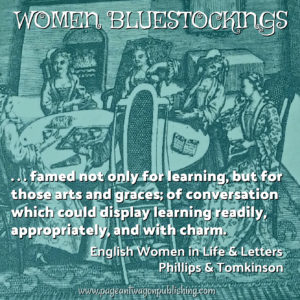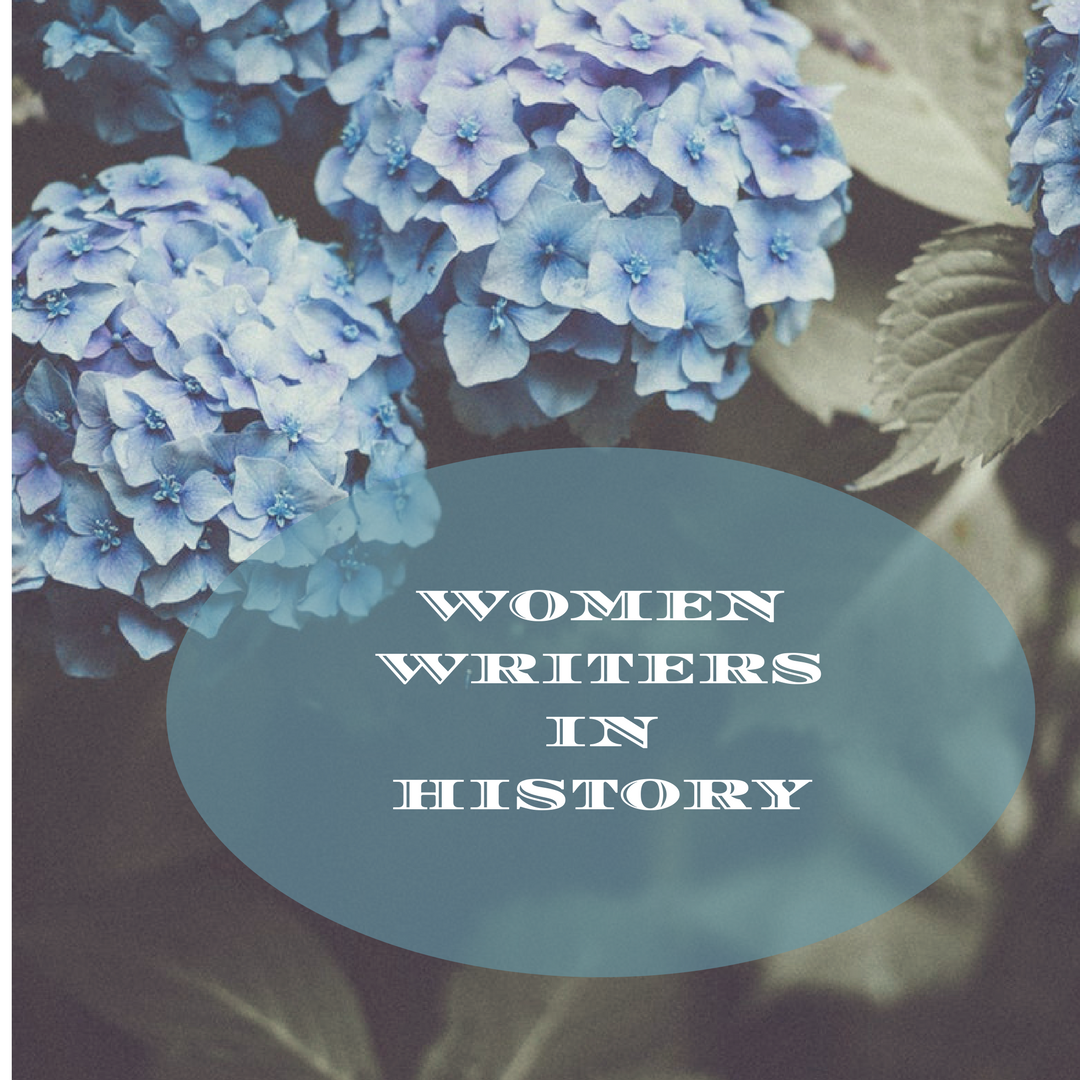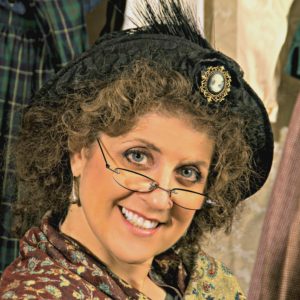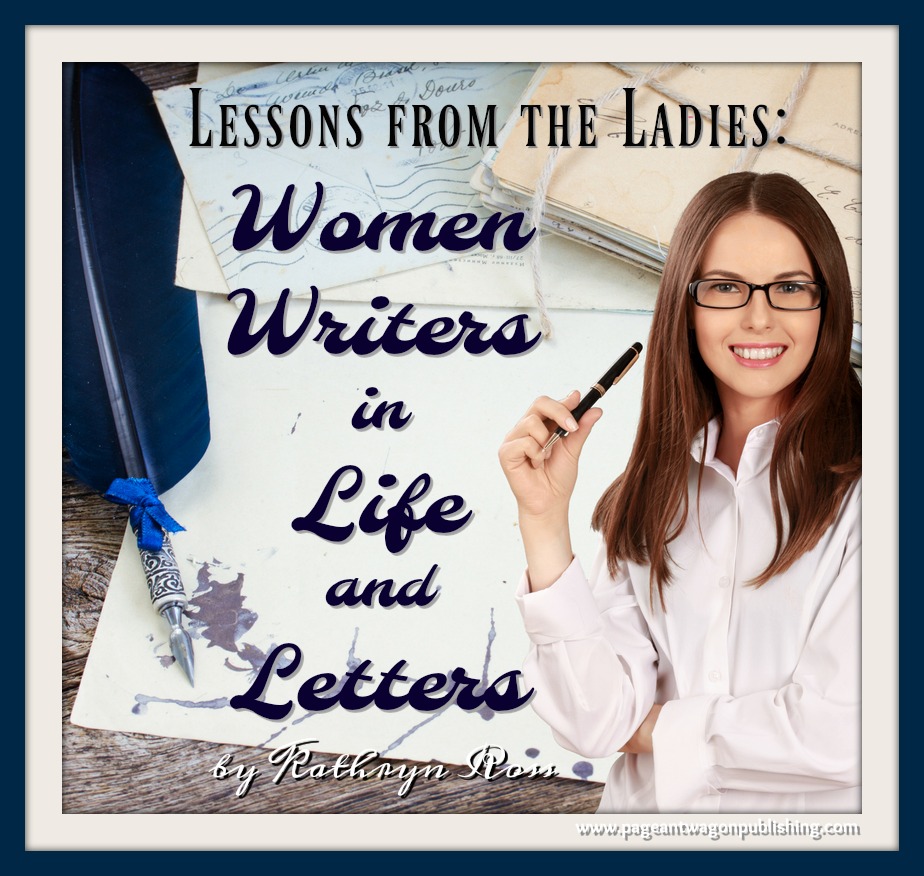When Benjamin Stillingfleet rejected the norms of 18th century polite society, for the graver pursuits of learning and literature—and the company of like minds for enlightened conversation—his fortunes dramatically altered. No more would he be invited to grand affairs requiring the fashionable formality of black stockings. His daily-wear blue stockings must suffice.
 No matter. He much preferred an intimate collection of lovers of learning in a private parlor, to the boredom of a society ballroom. His esteemed reputation and generous wit in conversation assured that no gathering of educated minds—both men and women—was thought complete apart from his presence. It is from his informal attire at such gatherings that the Blue-stocking Societies found their name and genesis in 1750’s England.
No matter. He much preferred an intimate collection of lovers of learning in a private parlor, to the boredom of a society ballroom. His esteemed reputation and generous wit in conversation assured that no gathering of educated minds—both men and women—was thought complete apart from his presence. It is from his informal attire at such gatherings that the Blue-stocking Societies found their name and genesis in 1750’s England.
Up unto that point in history, education for women was strictly guarded. It devolved from strong foundations in Bible, reading, writing, and sums in the early years, to the masterful use of a needle, screen sketching, dancing, and best practices in husband hunting by the mid-teens. A woman of forty might be considered less accomplished in intelligent conversation on the topic of geography and history than a girl of twelve.
But trailblazing young women, captivated by words, literature, histories, and the writing of their own opinions on these subjects, pursued their passion in the secrecy of personal diaries and journals. Men, seeking intelligent female companionship, and thoughtful conversationalists, bravely noted such ladies. They sought out these blue-stocking gatherings where book discussions, critical thinking, and shared knowledge trumped prowess on a dance floor.
They [blue-stockings] were famed not only for learning, but for those arts and graces; of conversation which could display learning readily, appropriately, and with charm. Later, the first great age of the ‘blue-stocking’ had passed away, the phrase lost its honourable meaning and became a byword and a term of reproach. In our day it has been used (perhaps unfairly) for women of much learning but little charm, well informed but ill dressed; for scholars skilled maybe in Greek, but ignorant of the making of a pudding . . . It is curious to note how the study of history was thought to be specially fitted to make women well informed and interesting—the two halves, as it were, of the blue-stocking mind.
English Women in Life and Letters, 1927
In fact, the celebration of non-fiction histories by virtually all 18th century blue-stockings surpassed the appreciation of fictional literature.
[As for history], I know of nothing equally proper to entertain and improve at the same time, or that is so likely to form and strengthen your judgement . . . more materials for conversation are supplied by this kind of knowledge, than almost any other.
Mrs. Chapone, Blue-stocking
By the close of the 18th century, women had come out of the scholar’s closet, so to speak. No more hiding their learned minds, they became known within their social spheres, many rising to a platform of widespread admiration. Still, there remained another hundred-plus years of battle for the widespread acceptance of women in higher education and literary equality with male scholars and authors.
As a writer in the 21st century, I find I have little to write if I am not well read. For me, and Mrs. Chapone, history is my go-to genre to exercise an informed and interesting mind, brimming with creative thought and a stimulated imagination. Like the blue-stocking ladies of the 18th and 19th centuries, I too prefer learned conversation in the intimacy of a living room over a cuppa tea, to the dullness of any number of contemporary entertainments that require no thought or sharing of minds.
Yes. I admit it. I am a blue-stocking, in the original sense, at heart. Call me a snob, if you must. I can’t pretend to write about a topic if I’ve not been properly informed on it. To be a good writer, I must first be a wise reader, choosing both informative and pleasure reading well.
For me, the first history I go to is His Story—the Bible. God’s Word is the plumbline standard for all learning and formation of opinions. From there, world histories—especially the continuation of His Story in the advance of the Gospel through Western civilization. From the ancients to Shakespeare to the classics penned over the past five-hundred years, I read fictional literature as the handmaiden of history. Only then, do I feel I might have something profound to offer through my own pen.
Consider adopting some 18th century blue-stocking ways to your 21st century writing life:
- Maintain a foundation of Bible reading to develop critical thinking from a biblical worldview. The very best stories are found in the Bible. There’s no better tutor for a writer/storyteller/novelist.
- Seek quality non-fiction texts to build a working knowledge of church and Western history, ancient and world history, political and social history, fashion history, and cultural history.
- Do not neglect reading the literary classics—ancient to modern. A great overview of this is found in Invitation to the Classics, compiled by Louise Cowan and Os Guinness. From this invaluable resource, you’ll find no end of subjects and historical personalities to explore.
- Make teaching and learning a social event by hosting book discussions or entertaining get-togethers around a specific topic. Be creative in planning the event, with good taste, wit, and charm. You’ll be establishing yourself as an expert on the topic chosen, building a marketing platform for yourself as a reputable, informed, and interesting author/speaker.
Journal Prompt: What are your go-to reading genres and why? How does what you read inform your worldview? How does your worldview inform your writing? List twelve non-fiction books regarding historical topics that you have not read, but think you ought to read. Assign them to your reading table, one for each of the next twelve months. Be sure to flag pages with interesting information, highlighting salient lines, so you can return to it for a future writing project. Make 2018 the year to discover the blue-stocking woman writer hidden inside of you!
TWEET:[bctt tweet=”To be a good #writer, I must first be a wise #reader. It’s the #bluestocking life for me! @misskathypwp @A3writers” username=””]
TWEET: [bctt tweet=”#Women Writers in Life and Letters— The Truth about #Bluestockings @misskathypwp @A3writers” username=””]
Reference: English Women in Life and Letters, by M. Phillips and W. S. Tomkinson, by Oxford Univertiy Press, Inc., 1927
Writer-speaker, Kathryn Ross, ignites a love of literature and learning through Pageant Wagon Productions and Publishing. She writes and publishes homeschool enrichment and Christian living books for home, church, and school. Her passion is to equip women and families in developing a Family Literacy Lifestyle, producing readers and thinkers who can engage the world from a biblical worldview. She blogs and podcasts at TheWritersReverie.com and PageantWagonPublishing.com. Connect with Miss Kathy on Facebook.






No Comments